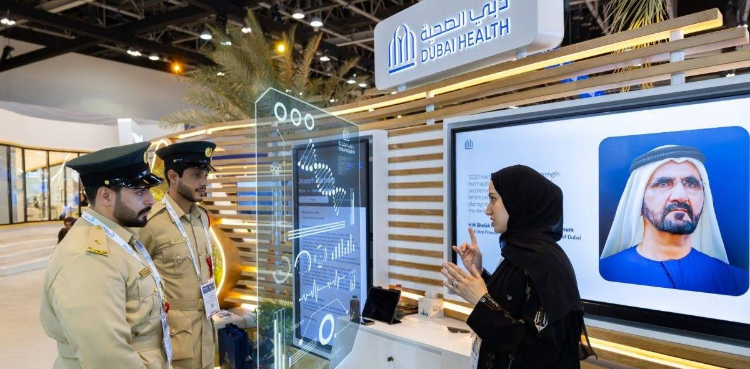Dubai Health has introduced a pilot project for a Virtual Intensive Care Unit (ICU), an artificial intelligence-driven system aimed at transforming intensive care through real-time patient monitoring at GITEX 2025.
The system was being tested at Al Jalila Children’s Hospital, which uses advanced cameras and data analytics to detect early signs of patient distress and instantly alert medical staff.
The technology was unveiled ahead of GITEX Global 2025, where Dubai Health will showcase its latest AI-driven technology that promises to reshape the healthcare experience in the emirate.
How the Virtual ICU works
Hend Majed Al Abbar, Director of the AI Enablement Department at Dubai Health, while explaining the function of the system, said that the Virtual ICU integrates AI-powered cameras with the health authority’s unified electronic medical record system, Salama.
These cameras monitor patients’ movements, facial expressions, and skin tone in real time, automatically alerting medical staff to any abnormal changes.
The ten-bed pilot programme is also being remotely monitored by specialists at the National Children’s Hospital in Washington, D.C., allowing round-the-clock supervision and knowledge exchange.
The system is due to go live in December 2025, after which results will determine its expansion to other intensive care units across Dubai’s hospitals.
How will it benefit critical care?
By combining visual analytics with clinical data, the Virtual ICU boosts patient safety and enables faster interventions, significantly reducing hospital stays and improving survival rates.
The AI system continuously records vital signs such as heart rate and blood pressure, ensuring even subtle physiological changes are noted in real time.
Al Abbar said the goal is to support, not replace, healthcare professionals: “AI enables us to identify distress early, act quickly, and improve outcomes for critically ill patients.” Similar virtual care models have already been adopted in several leading US hospitals.
Other AI breakthroughs
Dubai Health is also piloting Virufy, an AI-powered smartphone app that analyses breathing and cough sounds to predict respiratory illnesses. Currently under research at Nad Al Hamar and Al Barsha Clinics, the project is a collaboration with Dubai Future Solutions’ Prototypes for Humanity programme. Data from these clinics will help evaluate its predictive accuracy before wider rollout.
Another highlight at GITEX is Agentic AI for MBRU Admissions, a generative AI virtual assistant providing 24/7 support for applicants at the Mohammed Bin Rashid University of Medicine and Health Sciences (MBRU).
The system handles queries on registration, scholarships, and requirements through chat and phone interaction, streamlining the admissions process.
These digital health projects reflect Dubai Health’s commitment to advancing AI integration across its system, in line with the Dubai Social Agenda 33 and Dubai Digital Strategy.
